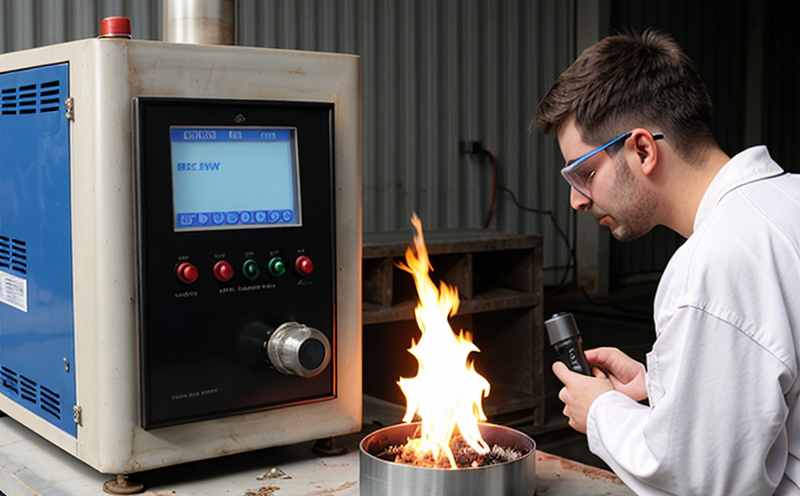Energy Efficiency Testing of Air Conditioning Units
The energy efficiency testing of air conditioning units is a critical component in ensuring that HVAC (Heating, Ventilation, and Air-Conditioning) systems meet the highest standards of performance. This testing is essential for several reasons: it ensures compliance with international regulations, optimizes operational costs, enhances environmental sustainability, and contributes to overall building efficiency. The process involves rigorous evaluation of various parameters such as refrigerant charge, air flow rates, temperature distribution, and power consumption.
Accurate energy efficiency testing requires precise instrumentation and a controlled environment that simulates real-world operating conditions. This ensures that the results are reliable and can be used to make informed decisions about equipment selection and installation. For instance, testing helps in identifying any inefficiencies or potential issues with the system before it is deployed in an actual setting.
One of the primary goals of this test is to assess how efficiently the air conditioning unit converts electrical energy into cooling power. This efficiency is typically measured by the Seasonal Energy Efficiency Ratio (SEER) for residential units and the Cooling Coil Capacity (COC) for commercial systems. These metrics are crucial in determining which models best meet the needs of specific applications.
Another important aspect of this test involves evaluating the unit's ability to maintain consistent temperatures across its entire footprint, especially relevant for large spaces like warehouses or office buildings. This ensures that energy is not wasted on areas where it is not needed. The testing also includes checking for leaks in the refrigeration system, which can significantly impact both performance and cost.
From a compliance perspective, energy efficiency tests are mandatory to ensure adherence to standards set by organizations such as ISO, ASTM, and ASHRAE (American Society of Heating, Refrigerating and Air-Conditioning Engineers). Compliance not only helps avoid legal penalties but also enhances the reputation of the company. By meeting these standards, businesses can demonstrate their commitment to sustainability and energy conservation.
In addition to regulatory compliance, there are numerous practical benefits associated with efficient air conditioning units. These systems contribute to reduced operational costs by minimizing unnecessary power consumption. Over time, this leads to significant savings on utility bills. Moreover, they help in maintaining a comfortable indoor environment, which is crucial for productivity and health.
Testing also plays a vital role in the research and development (R&D) process. Engineers can use these results to refine designs and improve future iterations of HVAC systems. This iterative approach ensures continuous improvement in technology and performance. For procurement professionals, this testing provides valuable insights into which products are best suited for specific requirements.
In summary, energy efficiency testing is not just a compliance requirement; it is an integral part of ensuring optimal performance and sustainability. By investing in thorough testing, companies can reap numerous benefits including cost savings, improved operational efficiency, and enhanced environmental responsibility.
- Compliance with international standards
- Rigorous evaluation of system performance
- Evaluation of temperature distribution across the space
- Identification and rectification of inefficiencies early in the process
- Minimization of unnecessary power consumption
- Enhanced indoor comfort levels
- Continuous improvement through R&D insights
Why It Matters
The importance of energy efficiency testing cannot be overstated, especially in the context of HVAC systems. In today’s world, where environmental awareness is growing, optimizing energy use has become a priority for both businesses and individuals. Efficient air conditioning units play a significant role in this effort by reducing greenhouse gas emissions and lowering overall carbon footprints.
From an economic standpoint, these tests are crucial because they help reduce operational costs. By identifying areas where energy is being wasted or used inefficiently, companies can implement targeted improvements that lead to substantial savings over time. This translates directly into increased profitability and better resource management.
The environmental impact of poorly performing HVAC systems should not be overlooked either. Overconsumption of resources contributes to pollution and strain on natural reserves. Efficient units help mitigate these effects by operating more effectively, thereby reducing the load on power plants and associated emissions.
For businesses specifically, energy efficiency testing is essential for maintaining a competitive edge in the market. Customers are increasingly looking for eco-friendly products and services that align with their values. Companies that demonstrate leadership in sustainability through effective HVAC systems can attract and retain customers more effectively.
In conclusion, the benefits of energy efficiency testing extend beyond mere compliance; they encompass broader societal impacts. By embracing these practices, businesses contribute to a healthier planet while simultaneously enhancing their own operations and standing within the industry.
International Acceptance and Recognition
The importance of energy efficiency testing extends beyond national borders due to its widespread acceptance and recognition by global bodies. Standards such as ISO 51340-1:2016 provide a framework for conducting comprehensive energy efficiency tests on HVAC equipment, ensuring that results are consistent and comparable worldwide.
Recognition from these standards is crucial because it fosters trust among stakeholders, including manufacturers, distributors, and end-users. Compliance with such internationally recognized guidelines enhances the credibility of both testing laboratories and the products they evaluate. This recognition also facilitates smoother international trade by aligning with global best practices.
Beyond mere compliance, these tests have far-reaching implications for public health and environmental conservation. By promoting efficient HVAC systems globally, we contribute to healthier living environments while significantly reducing our ecological footprint. The widespread adoption of such practices underscores the importance of integrating sustainability into everyday operations across industries.





